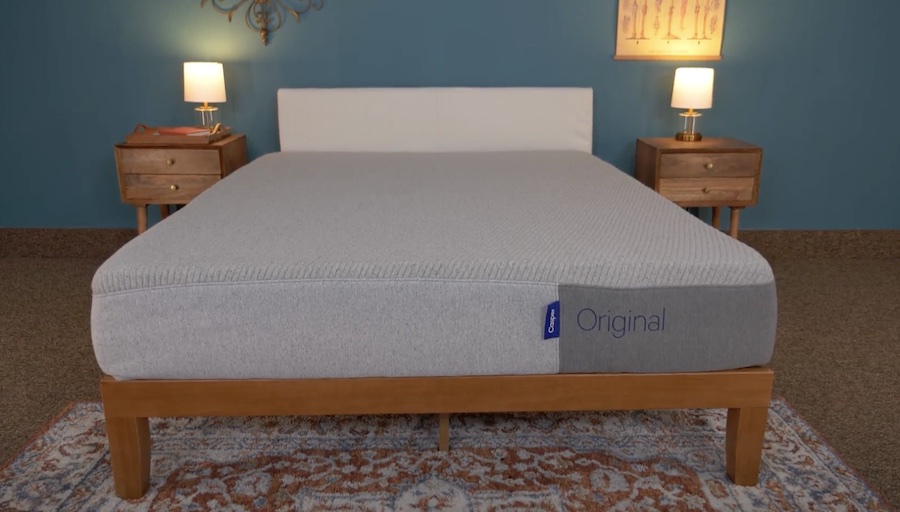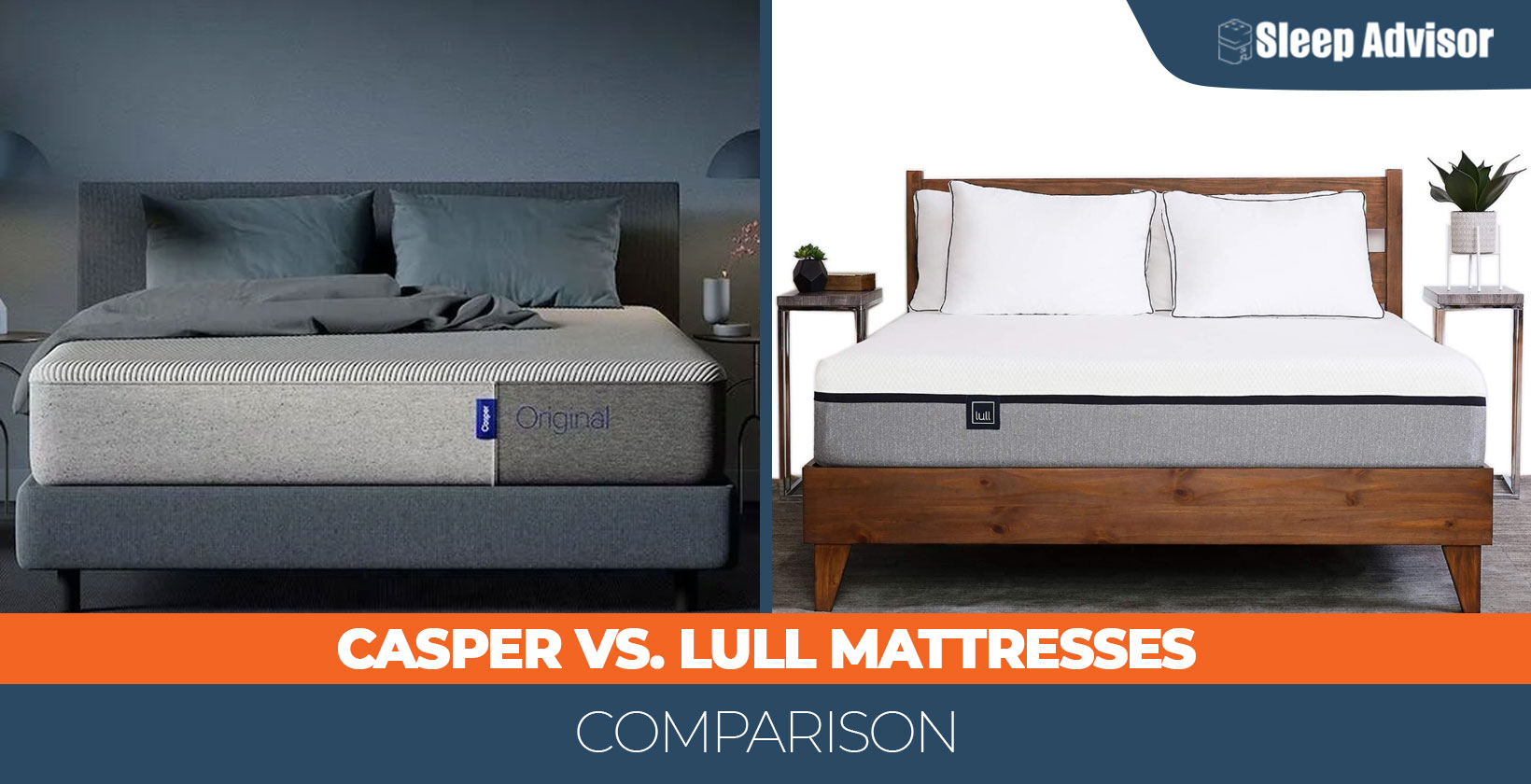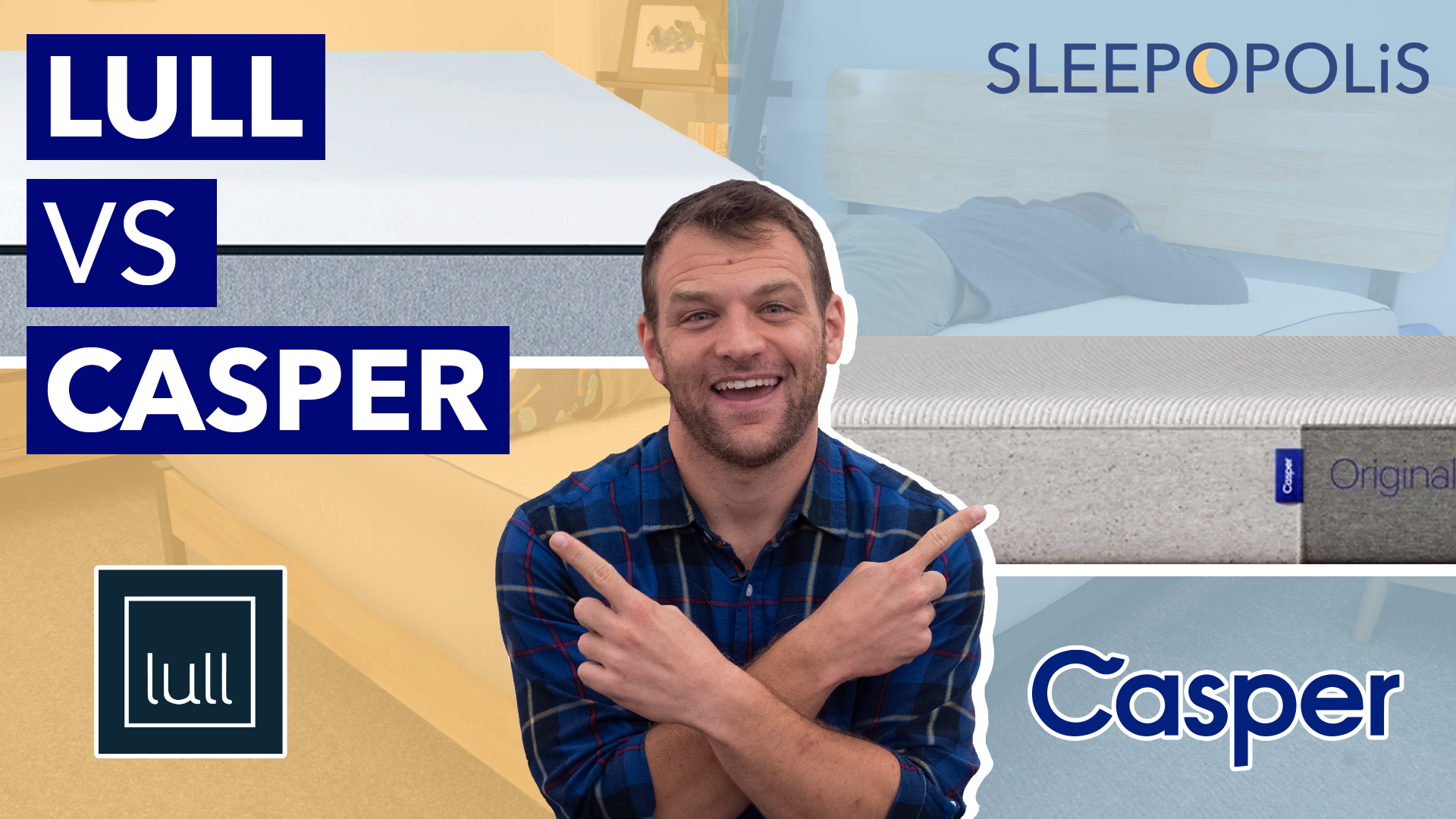Are you tossing and turning at night, struggling to find the perfect mattress that promises both comfort and support? You’re not alone.
Choosing the right mattress can transform your sleep experience and boost your overall well-being. If you’ve been scouring the internet for solutions, you’ve probably come across two popular contenders: Casper and Lull. But which one is truly worth your investment?
We’re diving deep into the world of mattresses to uncover the pros and cons of Casper and Lull. We’ll break down everything from comfort levels to price points, helping you make an informed decision. Imagine drifting off into a peaceful slumber each night on a mattress that feels tailor-made just for you. That’s what we’re here to help you achieve. Read on to discover which mattress will be your perfect sleep partner.
Brand Backgrounds
Understanding the history of a brand can shape your purchasing decisions. Casper and Lull both have unique stories. These stories reflect their core values and missions. Let’s explore the origins of these mattress pioneers.
Casper’s Origin Story
Casper started in 2014 in New York City. Five friends founded the company. They had a vision for better sleep solutions. They wanted to simplify the mattress buying experience. Casper’s innovative approach quickly gained attention. They offered a single, well-designed mattress. Customers could buy it online with ease. This approach disrupted the traditional mattress market. The founders focused on quality and customer satisfaction. Today, Casper is known for its transparency and innovation.
Lull’s Journey To Market
Lull emerged in 2015 in Santa Barbara, California. The founder, Sven Klein, aimed to improve sleep quality. He wanted to provide a convenient shopping experience. Lull focused on creating an affordable mattress. The company emphasized comfort and support. They chose a direct-to-consumer model. This model helped them offer competitive prices. Lull’s mission is to simplify sleep for everyone. They continue to grow by prioritizing customer feedback.

Credit: www.sleepadvisor.org
Mattress Construction
Choosing the right mattress can be a daunting task, especially when faced with enticing options like Casper and Lull. Understanding their construction can help simplify your decision. Let’s dive into how each mattress is crafted, from the materials used to the layering techniques employed.
Material Composition
Both Casper and Lull mattresses use high-quality materials to ensure durability and comfort. Casper typically utilizes a combination of breathable foam and supportive memory foam. This mix aims to provide both cooling and contouring benefits.
On the other hand, Lull focuses on using gel-infused memory foam, which is designed to keep you cool throughout the night. The gel infusion can be a game-changer if you tend to sleep hot.
Consider what matters most to you—breathability or cooling gel? Each material choice offers distinct advantages.
Layering Techniques
The layering approach of a mattress can significantly impact its feel and support. Casper employs a zoned support system, strategically placing different foam densities to cater to various parts of your body. This technique aims to alleviate pressure points and enhance spinal alignment.
Lull takes a simpler approach with its three-layer construction. It includes a top layer for cooling comfort, a middle layer for support, and a base layer for durability. Each layer serves a specific function, but sometimes simplicity hits the mark.
Do these layering techniques resonate with your sleep needs? Reflect on your sleeping habits and preferences. This will guide you in choosing the most suitable option.
Understanding these construction elements can be a game changer. Imagine waking up refreshed, thanks to the thoughtful design of your mattress. Your choice could make all the difference in achieving the restful nights you deserve.
Comfort And Support
Choosing a mattress involves a deep dive into comfort and support. These elements dictate sleep quality and overall health. The Casper and Lull mattresses each promise unique features. Let’s explore these under the lens of comfort and support.
Pressure Relief Features
Pressure relief is crucial for a restful sleep. Casper uses a zoned support system. This design targets pressure points effectively. It distributes body weight evenly. The softer foam around the shoulders helps in easing tension. Firmer foam under the hips and core provides added support.
Lull, on the other hand, offers a three-layer foam construction. This design aims to relieve pressure through a balanced approach. The top layer is gel-infused memory foam. It conforms to the body and helps reduce pressure build-up. This feature makes it suitable for side sleepers seeking comfort.
Spinal Alignment
Proper spinal alignment prevents back pain and promotes better sleep. Casper’s zoned support system aids spinal alignment. It ensures that the spine remains in a neutral position. This helps in reducing stress on the back and neck.
Lull also focuses on spinal alignment. Its supportive foam layers work together to keep the spine straight. This feature can be beneficial for those with back pain concerns. Lull’s medium-firm feel provides balanced support. It caters to a wide range of sleepers seeking spinal health.

Credit: www.sleepadvisor.org
Durability And Longevity
Casper mattresses are crafted with durable materials, ensuring a longer lifespan. Lull mattresses also offer impressive durability, thanks to high-quality foam layers. Both brands promise lasting comfort and support, making them reliable choices for those seeking long-term sleep solutions.
When you’re investing in a mattress, durability and longevity are crucial factors to consider. After all, nobody wants a mattress that loses its comfort after just a few years. Both Casper and Lull promise long-lasting performance, but how do they actually stack up in the real world?
Wear And Tear
Casper mattresses are known for their resilience over time. Many users report that even after several years, the mattress maintains its shape and comfort. The high-density foam used in Casper mattresses is designed to resist sagging, which is a common issue with lower-quality mattresses. On the other hand, Lull mattresses also offer impressive durability. They use a combination of memory foam and high-resilience foam to provide support that lasts. However, some users have noticed minor indentations after a few years, which could affect comfort. Have you ever flipped your mattress only to find it worn out on both sides? Casper and Lull both aim to prevent this, but it’s worth checking the specifics of your warranty to know what to expect.
Warranty Insights
Casper offers a 10-year limited warranty, which covers defects in materials and workmanship. This warranty is fairly standard in the mattress industry, but it’s reassuring to know you have a decade of coverage. Read the fine print, though—certain conditions and exclusions apply. Lull matches Casper with its own 10-year limited warranty. They promise to replace or repair your mattress if it fails due to manufacturing defects. However, normal wear and tear are not covered, so keeping your mattress in good condition is key. Are you the type of person who keeps every receipt and warranty card? If so, you’ll appreciate the peace of mind these warranties offer. But remember, understanding the limitations of each warranty can save you from unexpected surprises down the road. Ultimately, the durability and longevity of Casper and Lull mattresses depend on how you use them. Regular cleaning and proper support can extend the life of your mattress. Which one would you trust for years of restful sleep?
Pricing And Value
Choosing a mattress is a significant investment, and understanding the pricing and value can be daunting. Casper and Lull are two popular brands that often come up in the decision-making process. How do you determine which offers the best bang for your buck? Let’s dive into the cost analysis and long-term investment aspects of these mattresses, helping you make an informed choice.
Cost Analysis
When you first look at the price tags, Casper and Lull seem to be in a similar range. Casper mattresses generally start around $595, while Lull begins at approximately $499. However, prices can fluctuate based on ongoing promotions, so keep an eye out for deals.
Casper offers a wider range of models, which can push the price higher if you opt for premium features. Lull, on the other hand, keeps it simple with one primary model, focusing on affordability without compromising quality. Consider what features are essential for your comfort and weigh them against the price.
Are you willing to pay more for advanced cooling technology or zoned support? If the answer is yes, Casper might be your go-to. If you prefer straightforward value without the frills, Lull could be the better choice for your budget.
Long-term Investment
Think beyond the initial cost. A mattress is a long-term investment in your sleep quality and health. Casper mattresses boast durability and innovative designs, which can potentially save you money in the long run by lasting longer.
Lull offers a solid warranty and customer service, ensuring you won’t face unexpected costs down the road. Their straightforward approach means fewer parts to malfunction, which might be appealing if you’re looking for reliability.
Consider how long you plan to keep your mattress. If longevity and cutting-edge design are priorities, investing a bit more in Casper might be worthwhile. If you’re looking for a solid, cost-effective option, Lull stands strong.
Ultimately, think about what you value most in a mattress. Are you seeking immediate savings, or are you investing in a product that promises lasting comfort and support? Your choice should reflect your priorities and expectations for restful nights ahead.
Customer Feedback
Customer feedback plays a vital role in understanding mattress quality. Casper and Lull both receive diverse reviews. These insights help potential buyers make informed decisions.
Common Praise
Casper mattresses often receive praise for their comfort. Users appreciate the supportive feel. Many enjoy the cooling effect of the design. Sleeping cool is a major benefit. Lull mattresses also get positive feedback. Customers love the firmness balance. It supports the body well. Many report waking up without pain.
Frequent Complaints
Casper mattresses have some complaints too. Some users find them too firm. Others mention a slight odor upon unpacking. This odor usually fades fast. Lull mattresses face different issues. Some users feel they are too soft. Others say the edge support is lacking. This affects sitting on the side.
Sleep Trials And Returns
Choosing the right mattress can be a daunting task. Thankfully, companies like Casper and Lull offer sleep trials and return policies to help you make the best decision without the stress. These policies are designed to give you peace of mind, but how do they actually work?
Trial Periods
Both Casper and Lull understand that a few minutes in a showroom isn’t enough to gauge comfort. Casper offers a generous 100-night trial period. This means you can test the mattress in the comfort of your home for over three months.
Lull, on the other hand, provides a 365-night trial. Yes, a whole year! This extended period lets you experience all the seasons on your mattress. Imagine knowing how your mattress feels during a hot summer night or a chilly winter morning.
Is it possible to truly know if a mattress is the one without sleeping on it for a few nights? These trials make it easier to answer that question.
Return Policies
If you decide Casper isn’t right for you after the trial, the return process is straightforward. Casper arranges a pickup and issues a full refund. No restocking fees, no hassles.
Lull also offers free returns within the trial period. They make it easy with a simple refund process and no hidden charges. You won’t have to worry about packaging or shipping back a bulky mattress.
Have you ever felt stuck with a bad purchase? These policies ensure you won’t feel that way. You can confidently invest in your sleep knowing you have options.
Ultimately, both Casper and Lull provide flexible sleep trials and return policies, allowing you to try before you fully commit. Which trial period would you prefer? Is a longer trial worth it, or is a shorter, efficient return process more appealing? Your sleep experience is in your hands!

Credit: sleepopolis.com
Environmental Impact
Choosing a mattress involves more than comfort and support. The environmental impact matters too. Casper and Lull are two brands that consider their ecological footprint. Let’s explore their eco-friendly practices.
Eco-friendly Materials
Casper uses recycled polyester in their mattress covers. They aim to reduce waste by reusing materials. This helps lessen landfill contributions. Lull incorporates foam made without harmful chemicals. This choice protects the air and water from toxins. Both brands strive to offer safe sleeping environments.
Sustainability Efforts
Casper is committed to sustainable production processes. They focus on reducing energy use in factories. This approach limits carbon emissions. Lull participates in community recycling programs. They encourage the return of old mattresses for proper disposal. This reduces waste and promotes recycling. Both brands show dedication to the planet’s health.
Frequently Asked Questions
What Are Casper And Lull Mattresses Made Of?
Casper mattresses typically use memory foam and latex for comfort and support. Lull mattresses combine memory foam and gel-infused foam to ensure a cooler sleep. Both brands aim to provide a comfortable sleeping experience with their unique materials and construction.
How Do Casper And Lull Differ In Firmness?
Casper mattresses are medium-firm, offering balanced support for various sleepers. Lull mattresses are slightly firmer, catering to those who prefer more support. Both mattresses are designed to relieve pressure points and provide comfort across different sleeping positions.
Which Mattress Is Better For Side Sleepers?
Casper is often recommended for side sleepers due to its balanced support and pressure relief. Lull also offers good support but is slightly firmer. Side sleepers might find Casper more comfortable, but personal preference plays a crucial role.
Are Casper And Lull Mattresses Eco-friendly?
Casper and Lull prioritize eco-friendly materials and practices. Casper uses CertiPUR-US certified foams, ensuring low emissions and safe materials. Lull also utilizes CertiPUR-US certified foams, emphasizing sustainability and environmental responsibility in their production process.
Conclusion
Choosing between Casper and Lull is a personal decision. Both brands offer quality mattresses. Each has unique features to consider. Casper provides strong support and good breathability. Lull excels in comfort and affordability. Think about your sleep preferences. Do you need more support or comfort?
Consider your budget too. Both mattresses promise a restful night’s sleep. Read reviews and test them if possible. Your comfort matters most. Make the choice that fits your needs best. Sleep well on your new mattress.
